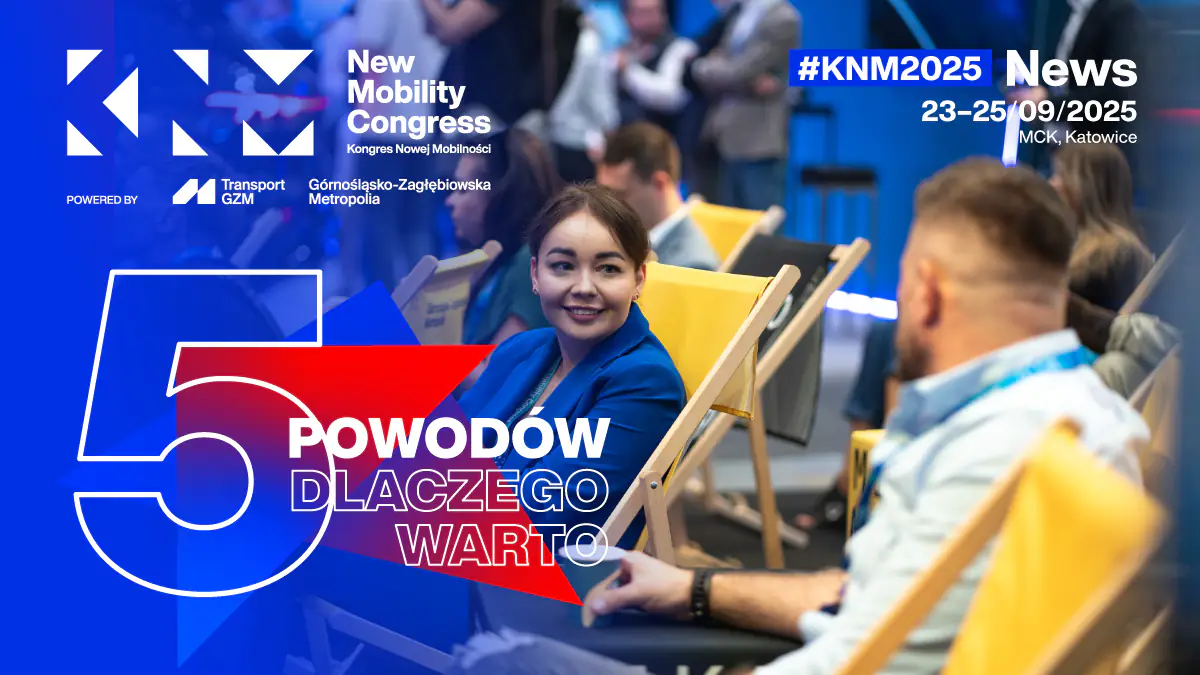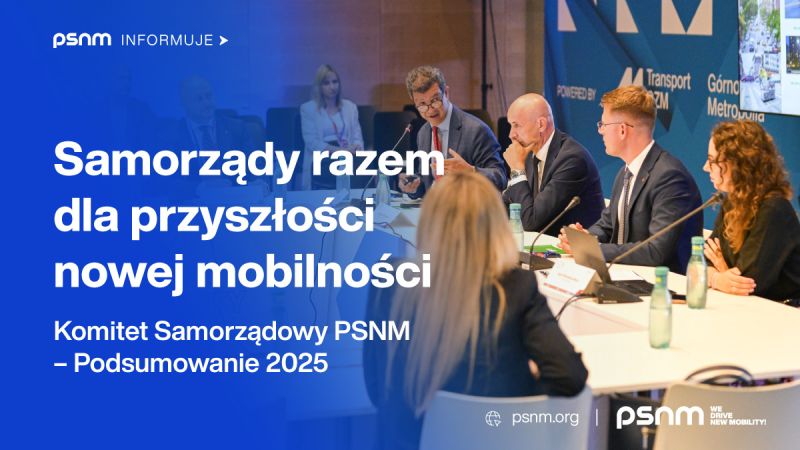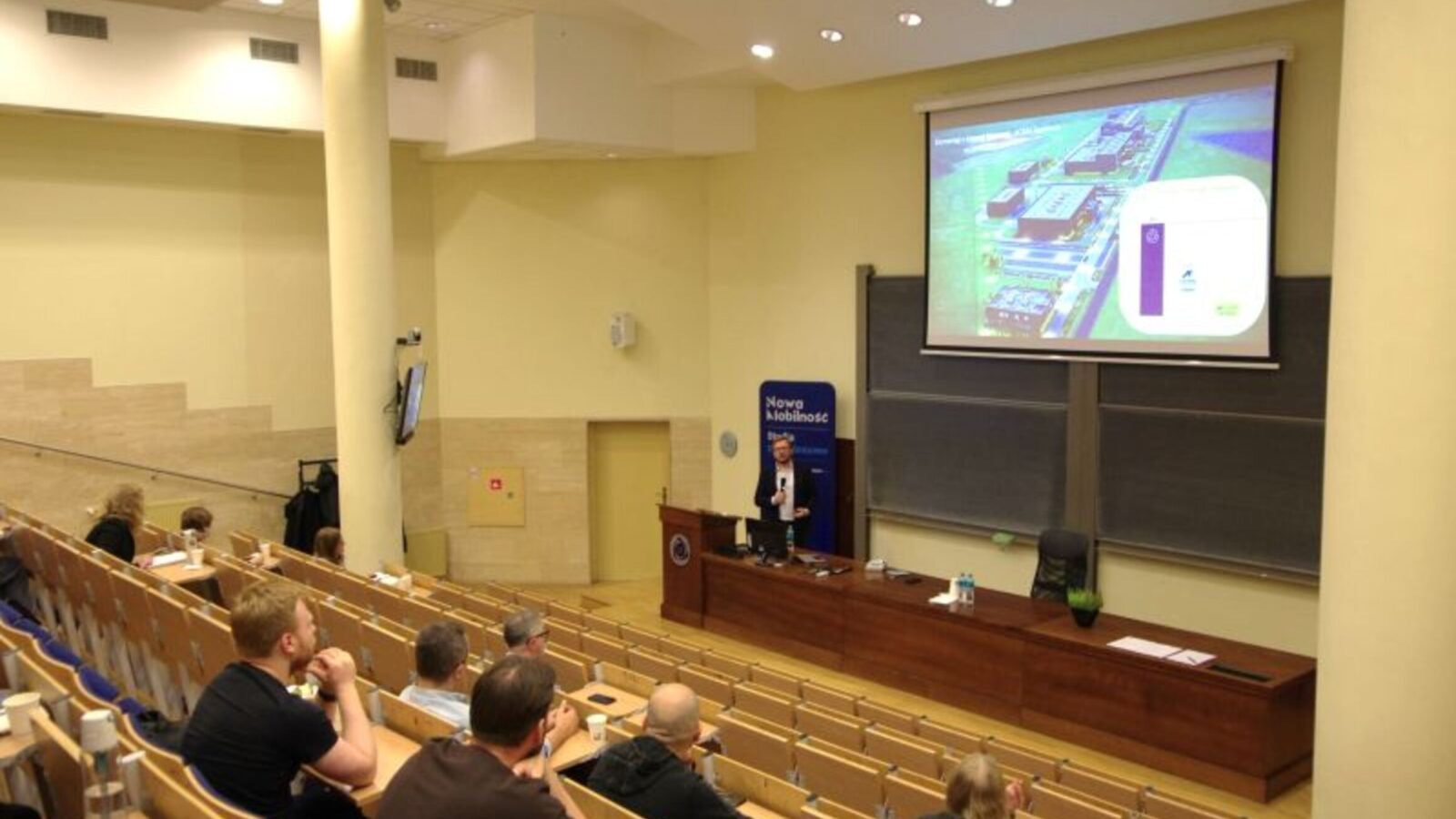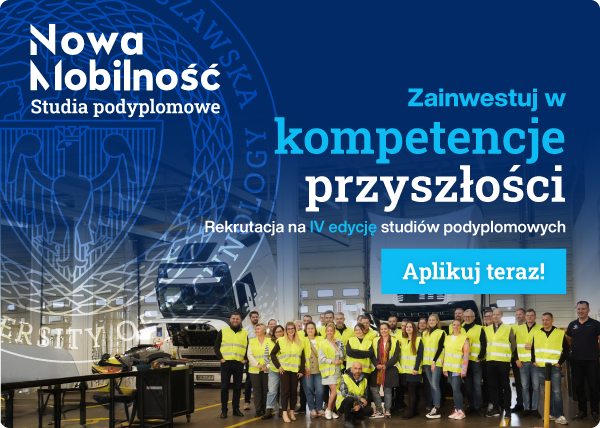400 world-class experts, 180 program items, and 150 exhibitors across 12,000 square meters — that’s the scale of this year’s New Mobility Congress in Katowice. From September 23–25, in the capital of Upper Silesia, you’ll discover visions shaping the future of mobility for the coming decades, experience technologies driving its decarbonization and sustainability, and explore ideas and concepts transforming cities and improving our quality of life.
The transformation of transport is happening before our eyes. In May this year, electric vehicles accounted for over 6% of new car registrations — a clear sign that the electromobility sector is accelerating and entering a new phase of development.
“The year 2025 may become a milestone for Polish electromobility. After the challenges of last year, we are now seeing a clear increase in sales, as confirmed by the record share of electric vehicles in new car registrations in May. Despite the easing of CO₂ emission standards for manufacturers, we do not expect a slowdown in the market’s growth dynamics,” emphasizes Maciej Mazur, Managing Director of PSNM. “We’re not stopping at positive forecasts — the industry needs continued and decisive action. In this respect, this year’s New Mobility Congress will be a breakthrough event.”
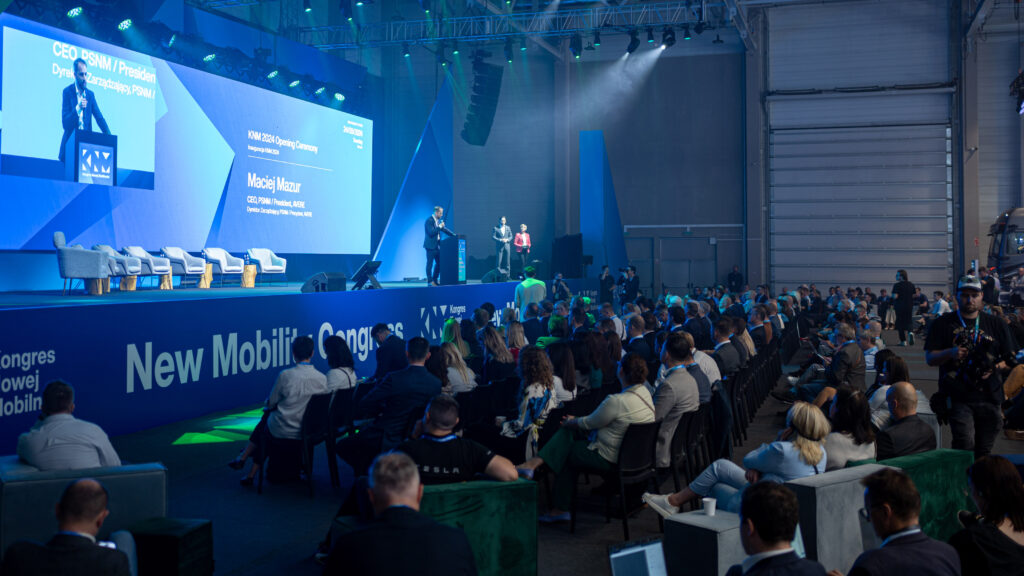
1. World-Class Experts in One Place
The true strength of every edition of the New Mobility Congress lies in its speakers — and this year’s lineup raises the bar higher than ever before. Among the many outstanding guests are several names worth highlighting. Carlo Ratti, architect, MIT professor, and curator of this year’s Venice Architecture Biennale, is regarded as one of the leading thinkers in contemporary urbanism. During the Congress, he will share his vision of smart cities and the transformations needed to make urban spaces more inclusive, safer, and better aligned with the needs of residents and businesses.
Another distinguished guest is Françoise Poggi, who spent seven years managing Tesla’s European supply chain. Her presence guarantees an in-depth discussion on the practical aspects of building charging infrastructure, supported by years of hands-on experience. Hui Zhang from NIO Europe will bring the perspective of a Chinese e-mobility leader expanding into new markets, while Arek Nowiński — the highest-ranking Pole in Volvo Cars’ global structure — will share insights from a European manufacturer navigating industry transformation. Rounding out the lineup is Beatriz Yordi from the European Commission’s DG Climate Action, architect of the EU Emissions Trading System, who will discuss regulations shaping the future of transport.
2. A Program Addressing the Key Challenges of the New Mobility Sector
This year’s Congress also stands out with its extensive and diverse agenda designed to tackle the most pressing challenges facing the sustainable transport sector. The organizers have prepared six thematic tracks, creating space for open, substantive discussions about the opportunities and issues that define the industry.
Clean Transport – focuses on zero-emission technologies,
Urban Innovation – explores the future of cities and infrastructure,
Sustainable Economy – looks at the business side of the transition,
Infrastructure & Investments – examines financing models for change,
Life Quality & Health – highlights the human impact, including air pollution, noise, and wellbeing.
“The Congress’ program board and speakers are aligned with our mission to develop and support the new mobility sector. The knowledge and experience of practitioners enrich all six thematic tracks, each offering a platform of expertise with world-class leaders in their fields — ensuring both the highest substantive quality and practical solutions for the industry,”
explains Agata Wiśniewska-Mazur, Deputy Director for Organizational Development at PSNM.
3. The Largest Exhibition Area Dedicated to New Mobility
From the latest electric vehicles to charging infrastructure, startups, and micromobility solutions — over 150 exhibitors will showcase their innovations across 12,000 square meters. Visitors will see the premieres of new electric cars — both passenger and heavy-duty — explore the offerings of leading infrastructure providers, and even test electric bikes on a dedicated track. This hands-on exhibition demonstrates that the conversation about new mobility is not just theory — it’s practice in motion.
4. High-Level Networking Opportunities
The New Mobility Congress is a unique meeting place for stakeholders from all corners of the mobility ecosystem — from public administration shaping transport policy to entrepreneurs seeking new business opportunities, and scientists and engineers developing technologies of the future. Researchers will be able to present their achievements at the Innovation Forum – New Mobility Scientific and Technical Symposium 2025, a strategic knowledge-transfer platform between academia and industry. Its mission: to commercialize research and position Poland as a leading production hub for new mobility.
The 60-hour program across three stages will unite universities, research centers, R&D departments, startups, and government agencies to discuss cutting-edge topics such as zero-emission drives, energy storage, autonomous mobility, and R&D collaborations.
5. “HUB it! – HUBnij to!” Competition: Supporting Young Architects
The Polish New Mobility Association (PSNM) and the Faculty of Architecture at the Warsaw University of Technology are launching a competition to design a micromobility terminal — a space integrating bicycles, scooters, and other urban transport modes. The contest, aimed at architecture and art students, seeks concepts that make urban mobility more convenient while creating multifunctional public spaces.
The winner will receive 7,000 PLN and a mentoring session with Carlo Ratti during the Congress. This unique initiative gives ambitious students access to expert knowledge and real-world experience. Applications are open until August 14.
A Turning Point for Poland
Both the automotive industry and Polish cities are undergoing a profound transformation. The transport sector is moving decisively toward zero emissions and autonomy, while local governments are making cities more livable — opening them up to pedestrians and cyclists.
The New Mobility Congress 2025 is a one-of-a-kind opportunity to take a close look at the ongoing and upcoming changes — and to see firsthand what the future of transport, the economy, and Polish cities looks like.
Join KNM 2025 at: Kongresnowejmobilnosci.pl
